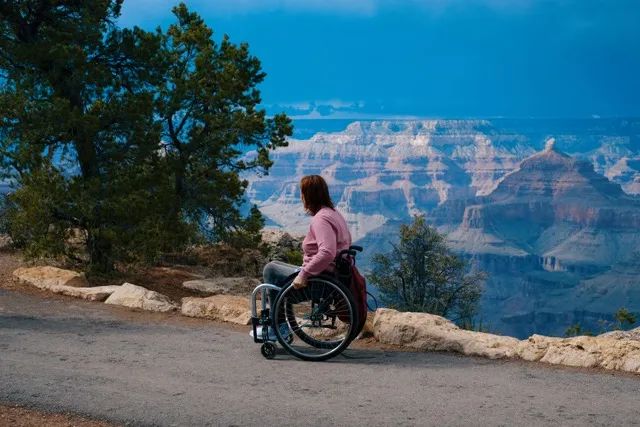The barrier-free tourism market has considerable potential, and companies should invest in improving the environment
People with disabilities often have to face various misunderstandings and difficulties in traveling, which greatly limits their space for outside experience. The tourism industry should enhance the accessibility of the tourism environment to provide equal experience opportunities for more guests and stimulate the considerable growth potential of this market segment.

Incredible Memories Executive Director Kristy Durso said, "People with disabilities have the same ideals and aspirations as everyone else, but they just have to make certain adjustments to how to function and live in society. Disability is not a condition that places limits on one's own thoughts, personality, and self-worth; The only limitations that people with disabilities have are the limitations that other people put on their mobility. But people with disabilities want to explore the corners of the world just as much as anyone. However, the disabled (including mobility, vision, hearing, autism and other neurodiversity, hidden disabilities, food allergies, diabetes and other dietary restrictions caused by a variety of inconveniences) always have to face a lot of misunderstanding and problems in the process of travel. What is more, most hotel rooms labeled as meeting the needs of the disabled are actually substandard.
There is still room for progress in tourism to improve environmental accessibility
For example, as a disabled traveler who has to use a wheelchair to get around, he recently checked into a new hotel and found it difficult not only to move around the public areas, but also to open and close the room door, curtains and soap in the bathroom. The hotel's response is that as long as she needs to get in and out of the room, she has to ask the front desk staff to assist her, which makes the guest feel embarrassed and troublesome.
Therefore, the tourism industry still has a lot of room to improve the accessibility of the environment. Many details must be known in advance if a travel agency is to help a guest arrange a trip, including the height of the bed in the hotel room, the height of the toilet, the height of the sink, the size and position of the bathroom chair, and the accessibility of soap and shower controls in the bathroom.
For people with various degrees of mental illness, the difficulties they may face include fear of flying, fear of crowds, etc. Therefore, travel agencies should take the initiative to ask airlines to provide free front-row seats or seats next to family members, and provide airport green channels for guests. Please provide quick check-in service, so that guests will avoid abnormal behavior due to great psychological pressure in the waiting process; Inform restaurants and scenic spots in advance, and make complete arrangements and strategies for guests to have a successful dinner and visit.
For wheelchair-bound guests, travel agencies should also ask the airport in advance to provide services to assist the guests to get to the gate, the airline company to provide wider seats, and the cruise ship to assist the guests to board, disembark and accessible land activities.
For guests with food allergies, diabetes, and other dietary restrictions, travel agencies can't simply provide a bowl of Yangchun noodles for each meal, so that guests can either drool at others' delicious food or risk exacerbating or worsening their illness in order to obtain the same good experience as others. Instead, they need to cooperate with various suppliers to improve the level of "catering equality" for guests. Allowing guests to have a wonderful dining experience with others while maintaining dietary restrictions.
The aim of these initiatives is not to give special treatment to one group, but to give everyone access to great travel experiences and rich memories by removing barriers.
Barrier-free tourism is an important market segment worth investing in
Accessible tourism is now a multi-billion dollar business, yet very few people with disabilities are willing to travel. This is not because people with disabilities have less spending power or live in inconvenient places, but because most people worry that they won't be able to fly, check into a hotel, eat in a restaurant, go exploring or be seen as different.
According to MMGY Global, the number of disabled visitors worldwide was estimated at 12.5 million in 2018-19 and is expected to double to 33.4 million by 2028. In addition, the survey showed that people with disabilities were more likely to travel in groups, were more likely to be repeat customers of destinations, and were more likely to make travel-related recommendations for others. On top of this, the barrier-free travel market is also one of the most inclusive and fastest growing markets in the world, as consumers can be a part of it regardless of income, race, gender, age and stage of life. Therefore, as long as the arrangement is in place, this market potential is very considerable, and it is an important market segment worthy of investment in the tourism industry.














